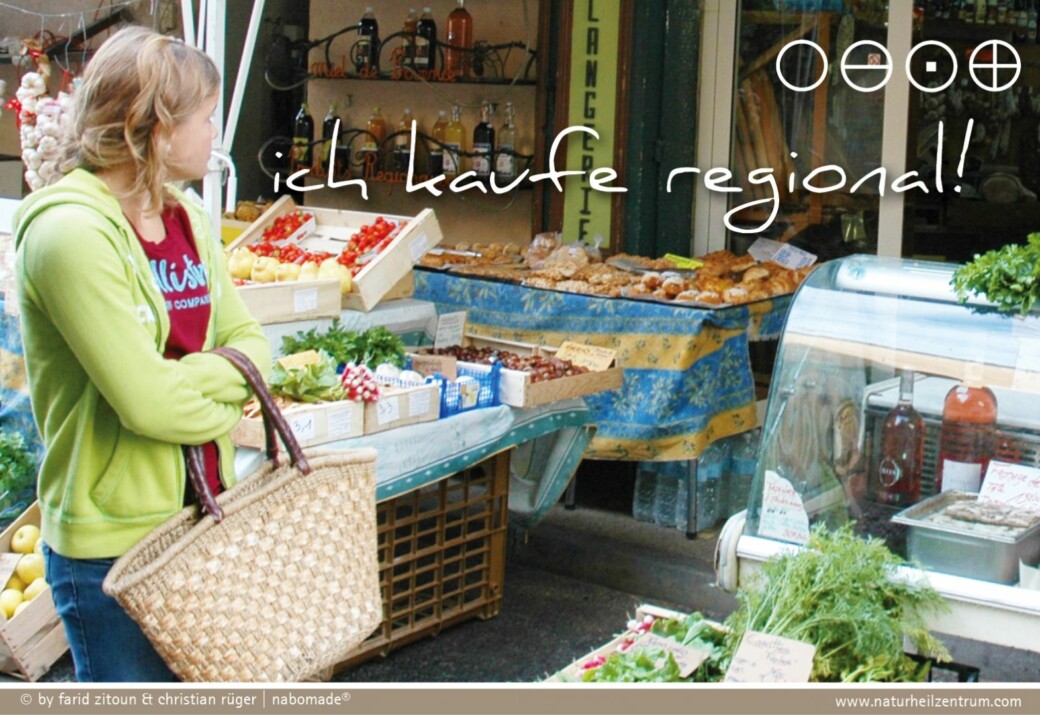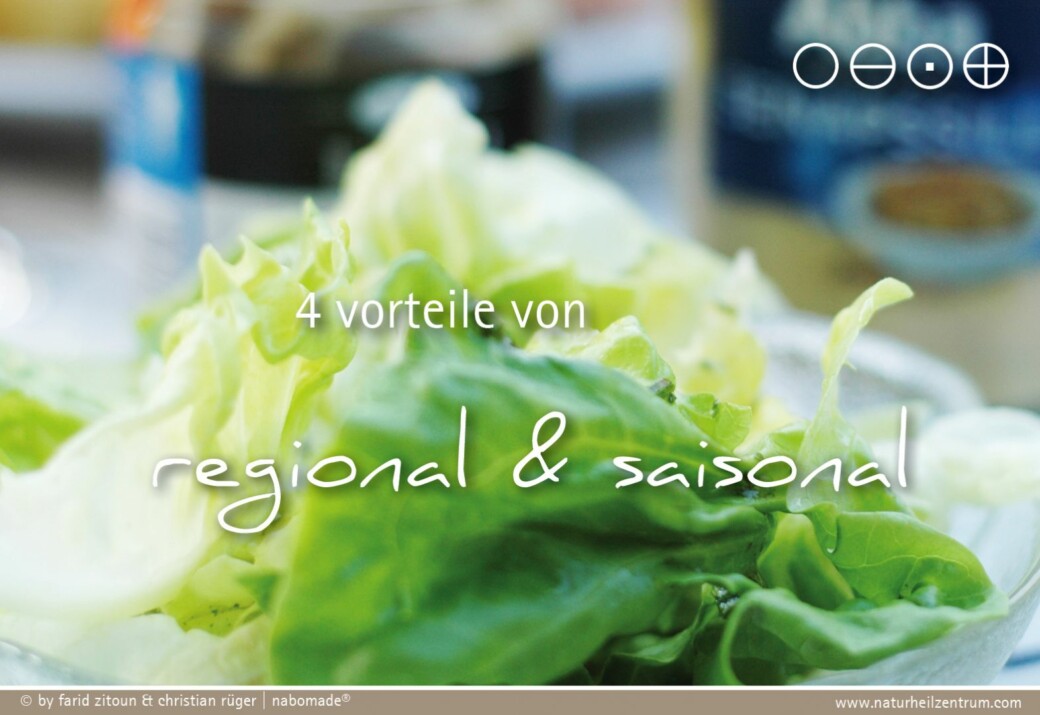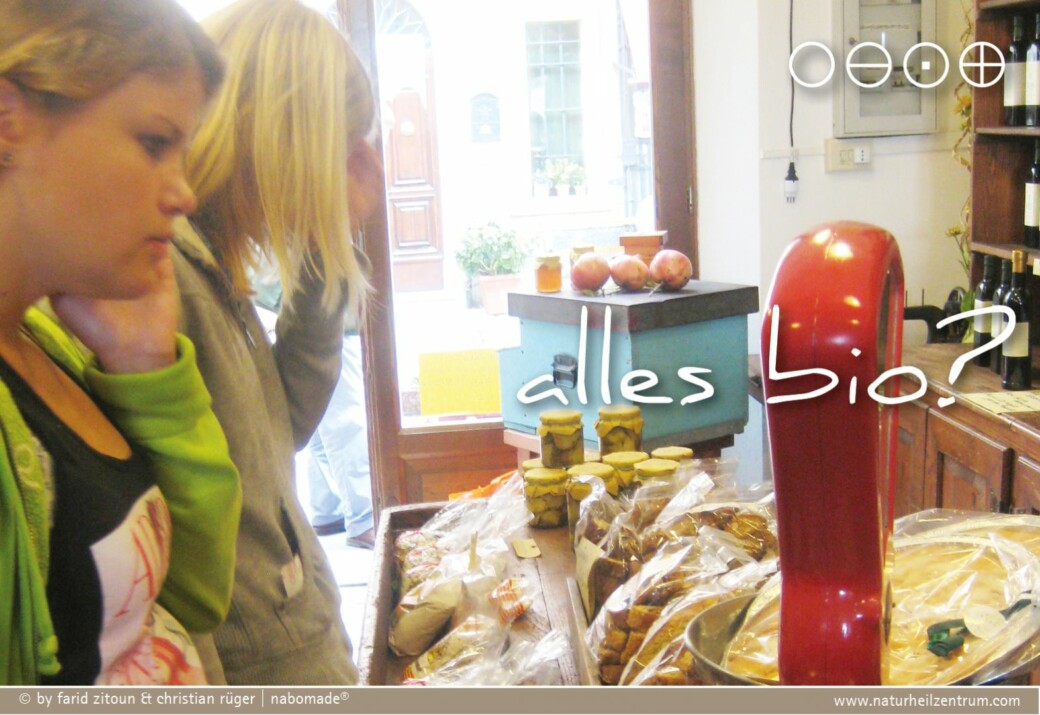nabo News – regional & seasonal: just hype or is it really much better for everyone?

Shortcuts with great effects through conscious nutrition
Have you ever eaten a grasshopper? No? This has not been a problem in Switzerland since March 2017. Three insect species have been approved for food production there. Mealworms, crickets and grasshoppers. Sounds like a jungle camp? But it isn’t at all.
Rather, the decision was the result of a simple realization. People are questioning and reflecting on their consumption and nutritional behavior more than before. Not everyone wants to be a vegetarian or vegan, but they do want to eat less meat. To make a contribution against mass animal farming, against animal cruelty, and also for the good of the environment. It is no coincidence that regional (local) foods are in greater demand than organic products. This was also confirmed in a study by the American company, A.T. Kearney (https://docplayer.org/1604888-Lebensmittel-regional-ist-gefragter-als-bio.html).
Regional & seasonal cooking – Nabomade® on YouTube
Were you already aware? Meat also consumes energy
For example, it takes 15 liters of water to produce one potato, while an incredible 3,500 liters are needed for a steak. This is something to think about in view of the worldwide water shortage.
The FAO, the Food and Agriculture Organization of the United Nations, also estimates that livestock farming accounts for 14.5 percent of all greenhouse gases, globally. A similar amount to the entire transport sector, i.e., what all cars, trucks, planes and tractors produce together.
The environmental association, WWF says that if every citizen gave up meat just once a week, it would save around nine million tons of greenhouse gases every year. The equivalent of 75 billion car kilometers.

The truth about the insect-protein myth
Environmentally-conscious eaters tend to be deficient in iron and protein due to the lower consumption of meat. This must be balanced by targeted nutrition, dietary supplements or replacement products. This is where the insects come into play. Their supposed wealth of protein explains the new nutritional trend.
However, in many cases, the amounts contained are overestimated. “When analyzing the protein content of insects, the chitinous exoskeleton is often included. However, it does not contain any protein or nutritional value,” explains Christian Rüger, a naturopath at Naturheilzentrum Bottrop. “Without chitin, the amount of protein in insects is the same as that of other livestock.”

Regional shopping – contributing to the promotion of the local economy
You do not have to resort to such exotic remedies to eat more healthily and sustainably, according to the naturopath and vlogger, Farid Zitoun. “What you eat is not that crucial. Where and when you buy it is much more important.” Zitoun and Rüger have made a recent YouTube video highlighting the benefits of regional and seasonal shopping. You will find further information about it on the Naturheilzentrum Bottrop Vimeo channel.
Ultimately, all types of mass food production lead to unresolved problems with an ever-increasing world population. Substantial quantities of water, animal feed, and medication would also be required for the extensive production of insects.
It therefore makes much more sense to shop ‘regionally and seasonally’. Because the best type of food production takes place where it is not produced in mass, where only small areas need to be cultivated, and where the transport routes are short.

Four reasons to buy ‘regional and seasonal’ produce
Such a conscious approach to your own diet has many advantages:
- For your health
Food is best in terms of nutritional value and flavor when it is harvested at the perfect time and is quickly consumed. In addition, the variety created by seasonal shopping leads to a very balanced diet.
- For your wallet
Fruit and vegetables are cheaper in peak season, as the prices fall due to the wide range.

- For the environment
Lower transport distances save energy and greenhouse-gas emissions will be reduced. For example, shipments of apples from South America require more than ten times more energy than is needed for the distribution of domestic produce. If the fruit is imported by air, energy consumption is more than 500 times higher.
- For the local economy
The preference for local products strengthens the predominantly medium-sized economy in Germany. Local farmers, farms and producers will be supported and can create long-term jobs. The neighborly effect strengthens the trust in the goods and their socially responsible production.

At Naturheilzentrum Bottrop, Farid Zitoun and Christian Rüger keep informing their patients about the benefits of a new food culture too. Although it really wouldn’t be that ‘new’.
Rather, it would be a return to a nutritional and cooking tradition that was once commonplace, as technological advances had not yet enabled the year-round availability of almost all types of food in every part of the world. In conclusion: not everything that is possible needs to be done. This also includes the breeding and eating of insects.







